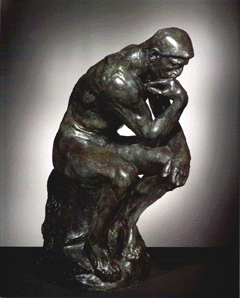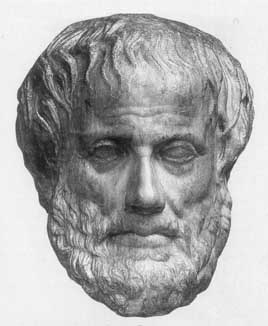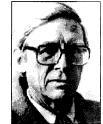

General | What to buy | Preparation | Vacation assignment | Topic 1 | Topic 2 | Topic 3 | Topic 4 |
You can access the appropriate elements of the John Stuart Mill opus online here. Indeed, while you are there, you can check out Bentham as well. It would do you no harm at all to read his An Introduction to the Principles of Morals and Legislation, to get a clear sense of how the Mill and Bentham versions of the doctrine differ. The Philosophy Faculty website has a reading list available in PDF format (which means you may need something like Adobe Acrobat Reader to download it) on Weblearn. Our list of topics will be somewhat different from theirs, and our recommended reading will differ too. But you are welcome to use the Faculty list as yet one more resource.
Utilitarianism, by John Stuart Mill, edited by Roger Crisp, OUP, 1998.
You will also need at least one secondary source. There are many of them. We recommend just one:
Mill on Utilitarianism, by Roger Crisp, Routledge 1997.
We also recommend, but do not insist, that you buy the following. You will certainly have to read them:
Utilitarianism: For and Against, by Jack Smart and Bernard Williams, CUP 1973.
Causing Death and Saving Lives, by Jonathan Glover, 1977
And anyone who has yet to puchase a philosophical dictionary, indispensable item of scholar's equipment, should do so NOW. There are many on the market. We recommend
The Oxford Dictionary of Philosophy, edited by Simon Blackburn
Read the text very carefully. That means at least three times, once through quickly, to get a general sense of what goes on, then twice slowly and carefully with the aid of a secondary source. IMPORTANT: NEVER EVER read a secondary source before you read the primary text. If you do, you doom yourself to forever seeing the text through someone else's spectacles. You must find out what YOUR response is the first time round. Read the whole of
Morality, by Bernard Williams, Penguin 1973.
And think about it. It is a little book, and its value is that it gives you an overview of Ethics, so that you can see where Utilitarianism fits into the wider picture, and it also gives you a very sharp and accurate chapter on Utilitarianism itself.
Read the whole of the Smart and Williams book mentioned above. And again, think about it. And perhaps re-read. And perhaps re-think.
That's all of the compulsory reading. But when we say compulsory, we mean it. Anyone who has not absorbed that material by the start of term will find that (i) there is no time to catch up on it, and that therefore (ii) classes and tutorials will not be as helpful as they should be. But now some voluntary reading. It will do you no harm at all to see a modern utilitarian operating across a range of issues. Read the Glover book mentioned above.
You will be taught in a mixture of classes and tutorials, and we shall cover four broad topics. The first class will be early in week 1, and we want you to prepare for it carefully. The topic is pleasure, and you are welcome to read as much as you like/can from the reading list under Topic 1. Indeed, the more you have read, the more fruitful the class will be for you.But we shall kick off the class with a discussion of the Experience Machine thought experiment. And as preparation, we want each of you to write a short piece on the matter. It need be no more than a page, but what we encourage you to do is to work hard on that single page, to be as brief and concise and as accurate as you can in expressing your thoughts on the matter. So lay out carefully what you take the experiment (or experiments) to be, and explain your view about what you think it shows. E-mail copies to me, please, by the end of week 0. Read, and think carefully about,
plus the appropriate parts of the Smart and Williams volume. Things you might like to be thinking about (the list is advisory only):Anarchy, State and Utopia, By Robert Nozick, Blackwell 1974, pp. 42-45
As advertised above, we shall begin with a discussion of the Experience Machine. But there is much more to think about, and perhaps to discuss. For Bentham all the time, and for Mill on alternate Wednesdays, all human actions are aimed at producing pleasurable states of mind. And hence their version of utilitarianism aims to maximise pleasure produced. We shouldn't perhaps do this, but we can advise you in advance that there are insuperable problems for any such philosophy of Mind and Action. Some of you will wish to resist this diktat. (That, in case you didn't recognise it, is a challenge). So think about these related questions:
Is there a conception of pleasure which is (a) recognisably something which all humans strive for, and yet (b) something which will function as a common currency in utilitarian calculations? [Hint: Williams' little chapter is very good on this]Are different pleasures commensurable? In other words, do they differ merely in the quantity of 'pleasure' which they provide? Or are there qualitative differences?Can a hedonistic utilitarianism make coherent sense of the notion of a preference?
Do humans have genuinely altruistic motives?
Because of these and similar problems, all modern utilitarians have abandoned pleasure as their target. There are instead two different strands of thought. Some think that what should be maximised is (weighted) desire satisfaction, or (weighted) preference satisfaction. And some (like Jim Griffin) argue for a broader conception of welfare as the item to be maximised.Try to get a sense of which problems for utilitarianism disappear after this switch, and which remain. And think about whether any new problems arise.
Our reading lists will be short. And we will expect everyone to have read everything on them. Week by week we will expect everyone to be familiar with the appropriate parts of the text, and the appropriate chapters of our recommended secondary source, Crisp. So, for instance, this week you will re-read, and revise your understanding of Mill's first two chapters, and chapters 2 and 3 from the Crisp. Those who seek further enlightenment may read anything they like from the Faculty reading list, available on Weblearn. Meanwhile, our basic list is:
'Bentham', by John Stuart Mill, available here. It is reprinted in many places. For instance, you will find it in Utilitarianism and Other Essays, Penguin 1987, edited by Alan Ryan.
Introduction to the Principles of Morals and Legislation, by Jeremy Bentham, 1789. Read at least chapters 1,4,5.It is available here, and is reprinted in an edition by J.H. Burns and H.L.A Hart, Methuen 1982. The ghouls amongst you may wish a glimpse of Bentham's mummy at University College, London, where under the terms of his will the mummy must attend every meeting of the Governing Body.
Well-Being: Its Meaning, Measurement and Moral Importance, by our emeritus White's Professor, Jim Griffin, OUP 1986. Read chapters 1-4, and Part II on measurement.
Morality, by Bernard Williams, Penguin 1973. Read the last chapter on utilitarianism.
And finally, to remind you how intense pleasure can be, and how begrudging some creatures are, here is a non-utilitarian oyster:

Indeed, all oysters are non-utilitarians. If they were utilitarians, they would not keep themselves so tightly closed, but instead would flick open their shells as soon as they detected your presence, and hurl themselves in joyful sacrifice down your throat, in the service of the greater good.
This week is, of course, devoted to understanding the Act-versus-Rule debate. But it also has a secondary focus: we will also be teaching you how to write exam answers in philosophy. Here is a very famous sculpture. Click on the image to discover more.
 Preparation for Class
Preparation for ClassWe aim to cover as much as possible, so the more you have read from the main reading list below, the more fruitful class will be. The required minimum is to read Mackie, for a very quick overview, and then to read and think about the cases detailed in the handout. Do they establish what they claim to? How might an Act-Utilitarian respond? How might a Rule-Utilitarian respond to that response?
There are two areas to sort out:[1] Is the Rule version an improvement on the Act version? And does it introduce problems of its own?[2] Was Mill an Act- or a Rule-Utilitarian? Or is that a silly question?To answer the second question, you will need to know your text rather well, because the textual evidence either way is scattered throughout the work. Check it through to pick up hints as to how Mill might have been thinking.
Mill and Crisp, of course. But then (in this order if you can arrange it)
Ethics: Inventing Right and Wrong, by John Mackie, Pelican, 1977; reprinted in Penguin Books, 1990. Read the whole of chapter 6, apart from section 5 on Mill's Proof, which is a topic for another day.
The Methods of Ethics, by Henry Sidgwick, 7th edition, Hackett, 1981. Sidgwick is the major Utilitarian writer. He is a scrupulously accurate Utilitarian, prepared to follow the doctrine wherever it takes him, whereas Mill, as you are about to discover this term, is remarkably sloppy for a mainstream philosopher. Indeed, the man who wrote On Liberty is barely recognisable in Utilitarianism. (The more ambitious amongst you are invited to speculate on why this might be so). Read Book IV, chapters I, III-V.
Moral Thinking: Its Levels, Method and Point, by R.M. Hare, (OUP, 1981). Richard Hare is another distinguished ex-White's Professor, who espouses a version of Rule-Utilitarianism. Actually, he gets very cross if you call him a Rule-Utilitarian. "No!" he screeches petulantly, "My view is a two-level view". Whatever. You are welcome to offend him by labelling him a Rule-Utilitarian. Because he is a bully, and deserves it. Indeed, he has only one redeeming feature, namely that his initials are the same as mine. So that when we were both at Corpus Christi, the SCR steward, who hates him with a fine hatred, secretly arranged that all the drink I signed for should go on Hare's battells.
Despite all that, he is a major figure, and you need to be able to deal with his take on the matter. And besides, Kinch is his replacement at Balliol, and does not wish to speak ill of his predecessor. Read chapters 1-3 for sure, and also chapter 5 if you have time.
And that's the absolute minimum. There is plenty more good stuff to read. We recommend
‘Two Concepts of Rules', by John Rawls, pre-eminent political philosopher of the age. You will find it in the Philosophical Review for 1955, volume 64, pp. 3-32.
‘Is act-utilitarianism self-defeating?', by Peter Singer. To be found in the Philosophical Review for (1972), volume 81, pp. 94-104. You may well have come across Peter Singer, who has made his name in connection with vegetarianism, animal rights and other nice cuddly things. Like Hitler, he is kind to dogs. But he was a graduate student of Hare's, and he is a Hare clone. You have been warned.
Forms and Limits of Utilitarianism, by David Lyons, OUP, 1965. It is a dull book, and rather stodgy, but it gives a useful background survey. Skim it for a wider picture.
After reading all of that, you will be in need of some moral uplift. So here are the three All-Time Greats in Ethics:



Please re-read, and rethink the problem cases from last week: The Desert Island Promise, The Frontier-Town Sheriff, and Jim and the Indians. Now we want you to think about two further cases, The Cable Car and The Organ Donor. Click on the images to read about them.
And now, think: are these two new cases parallel? Or is there an asymmetry? And how do these new cases compare with the three from last week?

It will help no end to have a working grasp of the notion of a right. The literature on this topic is vast and confusing. Theories abound and proliferate. To save you time and trouble, we are going to insist on a very particular way of thinking about rights, and we are going to tell a very basic story about that way of thinking.We have chosen it because it is the easiest to understand, and because it presents the sharpest possible challenge to utilitarianism. Bob thinks that it is ultimately the best way to think about rights. And Kinch thinks that it isn't. But both agree it's the best way to start thinking about these things. Later in your career you will no doubt form your own opinion. But, as we said, we shall insist on our prototype for now.
You can read it here.
As always, the appropriate parts of Mill and Crisp, which here means chapters 5 and 7 respectively. And then as much as you can of
The Methods of Ethics, by Henry Sidgwick, 7th edition, Hackett, 1981. Utilitarianism's major theorist does his best in Book III, chapters 5 and 6, and Book IV, chapter 3.
Rights, Welfare and Mill's Moral Theory, by David Lyons, OUP 1994. Chapter 6 is the main one on Rights, but chapters 3 and 5 will be helpful too.
Moral Thinking: Its Levels, Method and Point, by R.M. Hare, (OUP, 1981). Chapter 9.
And that is the basic mimimum. But there is a lot more good stuff out there. We recommend
A Theory of Justice, by John Rawls, OUP 1972. The book which made it possible to be a liberal in the USA without being gunned down on the sidewalk. Jack Rawls is loved and respected by almost all who knew him, and it will do you no harm at all to make his acquaintance. Sadly, he is no longer with us: he died on Sunday November 24, 2002, aged 81. Here are his three Big Books, and a picture of the man himself:




Read Chapter 1, sections 5 and 6. And if you are motivated to find out more, try Chapter 3, sections 27-30. Rawls thinks he has a series of arguments against utilitarianism. If you want to see someone arguing trenchantly against that position, here is an excellent article:"John Rawls and the Social Minimum", by Jeremy Waldron, which appeared originally in the Journal of Applied Philosophy, vol. 3, 1986, pp. 21-33, but is best sought for in Jeremy's collection of papers, Liberal Rights, CUP 1993. And while you are there, We recommend having a look at Chapter 1, and anything else that takes your fancy. And then perhaps you will be attracted to
Theories of Rights, OUP 1984, edited by Jeremy. This is the Oxford Readings in Philosophy volume on Rights. Many of the articles are pretty turgid, but the editor's introduction is excellent. Especially if you want a working grasp of what makes Rights considerations distinctive.
There are two main issues for us.
First, taking 'On Liberty' as a self-standing document, we want to extract, examine and appraise Mill's position on individual liberty. How important does Mill think liberty is? Why does he think it so important? Is he right?
Second, remembering thjat Mill also wrote Utilitarianism, we wonder what light each volume throws on the other. Are the two values (Individual Liberty and General Utility) compatible? How so? Are Mill's arguments for individual liberty consistent with his utilitarianism? Indeed, what are the values comprising utility for Mill?
SO: Read, Re-read, and Re-read On Liberty. I don't know how you go about tasks like this, but if it were me I would skim on a first reading, to get a sense of the structure of the document, the location of the arguments, the general tenor of the work, etcetera. Then close-read the second time round, looking for answers to the first set of questions, and thinking about them. And then close read again, this time concentrating on the second set of questions.
Come along armed with answers. We shall ask individuals to present a case to the room.
Adam will offer you a choice between two titles:
And if you are not being taught by Adam, and instead would like to do an essay for me, I offer you a third title:
Mill, of course, and Crisp chapter 8. For the rest of the reading, I reproduce Adam's standard reading-list, which gives things in his (rough) order of priority, adding (at the end) one contribution of my own.
For an overview, try chapter 4 of Jonathan Wolff's book, An Introduction to Political Philosophy (1996).
And then something more precisely targeted. Here's a useful collection - John Stuart Mill on Liberty in Focus (1991), put together by John Gray and G.W. Smith (whoever he or she may be). Read anything you like, of course, but Adam recommends two articles: 'Mill's Conception of Happiness and the Theory of Individuality' by John Gray, and 'Mill's Defence of Liberty' by C.L. Ten.
And then chapter 12 of Alan Ryan's offering, The Philosophy of John Stuart Mill (2nd edition, 1987). Although you probably won't find much here that isn't in Crisp.
And for those who are interested, I recommend an article by Jeremy Waldron called 'Mill and the value of moral distress', which appeared originally in Political Studies volume 35 (1987), pp. 410-23, but is reprinted in Jeremy's collection of his own papers Liberal Rights: Collected Papers 1981-1991. It discusses in particular whether moral distress should count as harm, but its main value is in the methodological points made on how to think through such things. And while you have the collection, I recommend that you read anything else which takes your fancy. This is an excellent collection, full of good ideas clearly explained.
Here you will find avuncular advice on various matters. So far there are just two pages, but if people e-mail sensible requests, I will post more.
If you have got this far , you are entitled to a philosophical treat. Here it is: Raphael's School of Athens, with Plato and Aristotle centre stage:



